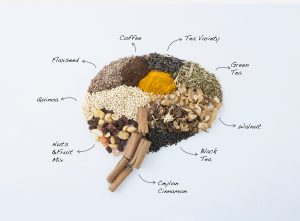 If you’re 85, you have a 50 percent chance of getting dementia. But another study suggests that one-third of cases could be prevented. This is good news for all seniors, but the key is we have to start as young as possible if we want to prevent dementia and Alzheimer’s when we’re older.
If you’re 85, you have a 50 percent chance of getting dementia. But another study suggests that one-third of cases could be prevented. This is good news for all seniors, but the key is we have to start as young as possible if we want to prevent dementia and Alzheimer’s when we’re older.
The older we get, the more my friends and I are grateful we’re not showing signs of brain decay. Other friends haven’t been so lucky. Now we hear that those of us who’ve regularly exercised, ate healthy and took care of ourselves have a good chance of beating the odds of Alzheimer’s Disease and Dementia.
I’m thrilled each time I hear good news about senior health. I just heard Max Lugavere give an excellent TED talk about how a group of over 100 scientists now propose the dreaded Alzheimer’s Disease can be preventable.
Dementia and Alzheimer’s: Silent Killers on the Rise
In 1904 the disease was first noticed and named by Dr. Alzheimer. Today, 90% of what we know about it has been discovered in the last 15 years. This year 5.8 million Americans are living with the disease. Worldwide, an estimated 44 million people are affected by it and other symptoms of dementia. By 2050, the number of Alzheimer’s patients in the U.S. is expected to number 14 million.
Alzheimer’s develops slowly and symptoms only appear decades after it has started to invade the brain. By the time it becomes obvious, there isn’t much treatment that works.
Pharmaceutical companies are racing to find a cure. So far, 100% of drug trials have failed, although there are a few medications aimed at treating symptoms.
Unless we can prevent A.D., one in two millennials, expected to live to their 90s, will have dementia.
It’s Not All Genetic
Contrary to popular opinion, the disease may not be 100 percent genetic. There is a gene that puts some people at greater risk. But people in a tribe in Nigeria have the gene but don’t develop the disease. Why? Diet.
What kind of diet would be protective? Our brains developed at a time when we were hunter-gatherers. We ate plants. We didn’t eat as much grain as we do today. Some scientists believe that a plant based diet free of grains is better for our brains. So are omega-3 fats. Instead we have been misled to believe that omega-6 vegetable oils are best for health.
3 Steps to a Better Brain
It may be a while before they find a cure for brain disorders. But we can start now, at any age, to ensure we protect our brains. These three steps will help you improve your chances of keeping brain power as you age:
- Exercise a minimum of 30 minutes a day. More is better, up to a point. Exercise promotes blood flow to the brain and promotes growth of neurons. If you find it hard to stay motivated, think about how hard it will be to not remember your loved ones. Find something fun, pair up with a buddy, engage a trainer to ensure you maintain a regular program.
- Eat healthy. There are far too many diets to choose from, and none have proven themselves to be the single best answer for brain health. But research points out that the Standard American Diet (SAD) with it’s emphasis on dairy and wheat may not be best for the brain. What’s good for the heart is good for the brain, but be wary of research sponsored by industries such as the sugar, corn, wheat, meat, and agro-food companies. Eat natural, whole foods, with plenty of plant sources, and avoid all processed foods. Many contain carcinogens, are depleted of vitamins and minerals, and can destroy your gut and brain. (Note: we get enough toxins from our environment and cleaning products, we don’t need to add to the problem with unnatural factory foods.)
- Get quality sleep, at least 7 restorative hours. Sleep promotes cleansing of the gut and brain, detoxifies cells, regenerates new cells including neurons, and restores balance to our system. Do everything you can to create maximum sleeping conditions without the use of medications.
One more thing we can do to protect our brains is to ensure our digestive system is healthy. The gut microbes are intimately connected to the brain, providing up to 70 percent of our neurotransmitters like serotonin, dopamine and norepinephrine.
Because of stress, lack of good sleep and use of antibiotics, we deplete healthy bacteria in our intestines. This can be corrected with probiotic supplementation. I suggest you ask your health food store or pharmacy for recommendations.
These steps are relatively easy to implement at any age. The younger you start taking care of your brain the better. They are also easy to skip in the hustle and bustle of every day life. Just remember, you don’t want to be one of the projected victims of dementia and Alzheimer’s when you’re older. Prevention starts now, today.

Recent Comments